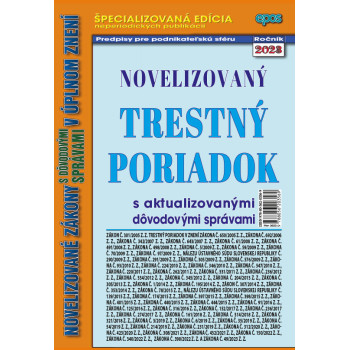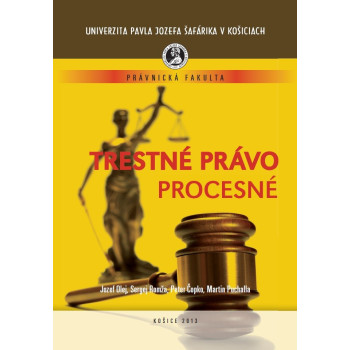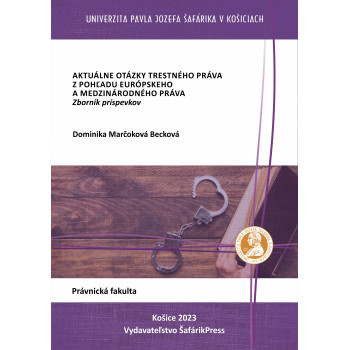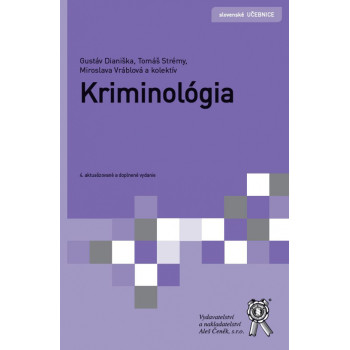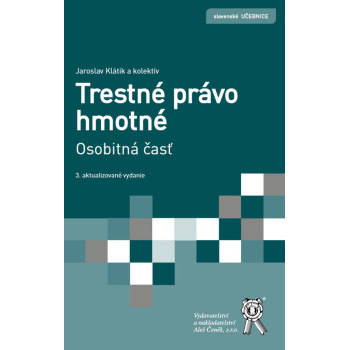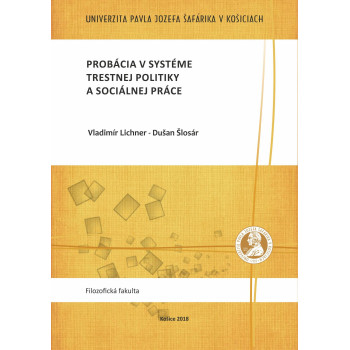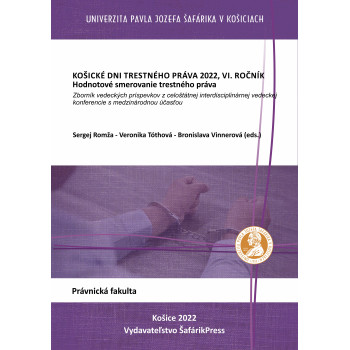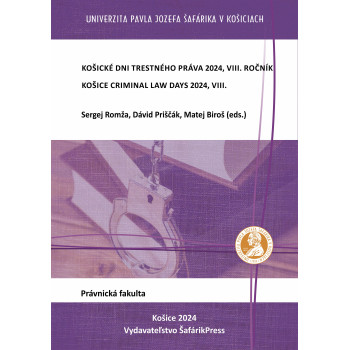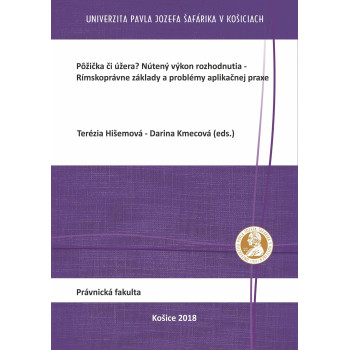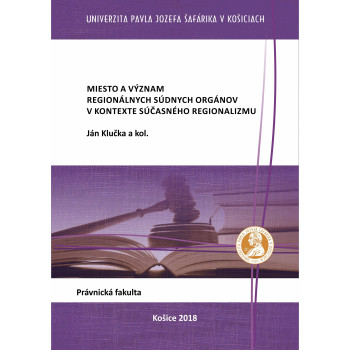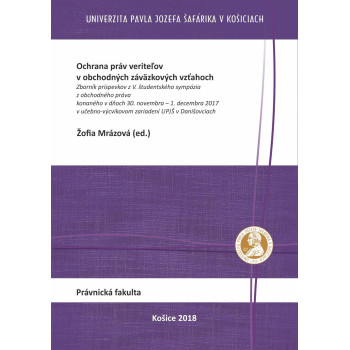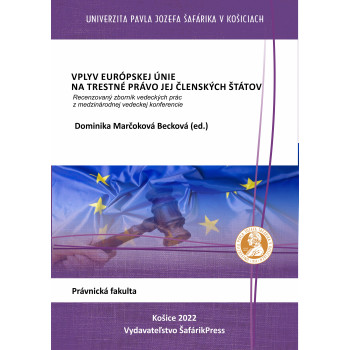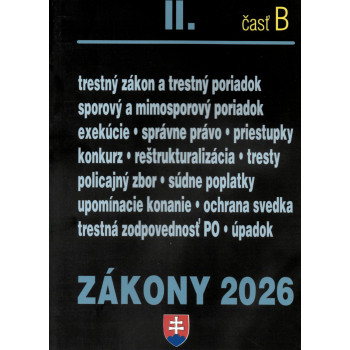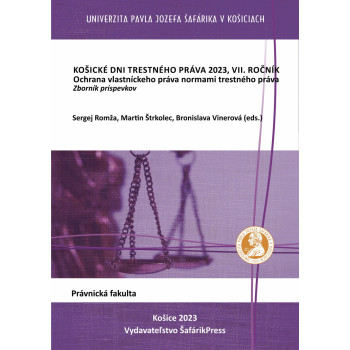
Novelizovaný trestný poriadok 2023
Novelizovaný Trestný poriadok s aktualizovanými dôvodovými správami v úplnom znení
ZÁKON Č. 301/2005 Z. Z. TRESTNÝ PORIADOK V ZNENÍ ZÁKONA Č. 650/2005 Z. Z., ZÁKONA Č. 692/2006 Z. Z., ZÁKONA Č. 342/2007 Z. Z., ZÁKONA Č. 643/2007 Z. Z., ZÁKONA Č. 61/2008 Z. Z., ZÁKONA Č. 491/2008 Z. Z., ZÁKONA Č. 498/2008 Z. Z., ZÁKONA Č. 5/2009 Z. Z., ZÁKONA Č. 59/2009 Z. Z., ZÁKONA Č. 70/2009 Z. Z., ZÁKONA Č. 97/2009 Z. Z., NÁLEZU ÚSTAVNÉHO SÚDU SLOVENSKEJ REPUBLIKY Č. 290/2009 Z. Z., ZÁKONA Č. 291/2009 Z. Z., ZÁKONA Č. 305/2009 Z. Z., ZÁKONA Č. 576/2009 Z. Z., ZÁKONA Č. 93/2010 Z. Z., ZÁKONA Č. 224/2010 Z. Z., ZÁKONA Č. 346/2010 Z. Z., ZÁKONA Č. 547/2010 Z. Z., ZÁKONA Č. 220/2011 Z. Z., ZÁKONA Č. 262/2011 Z. Z., ZÁKONA Č. 331/2011 Z. Z., ZÁKONA Č. 236/2012 Z. Z., ZÁKONA Č. 334/2012 Z. Z., ZÁKONA Č. 345/2012 Z. Z., ZÁKONA Č. 204/2013 Z. Z., ZÁKONA Č. 305/2013 Z. Z., ZÁKONA Č. 1/2014 Z. Z., ZÁKONA Č. 195/2014 Z. Z., ZÁKON Č. 307/2014 Z. Z., ZÁKONA Č. 353/2014 Z. Z., ZÁKONA Č. 78/2015 Z. Z., NÁLEZU ÚSTAVNÉHO SÚDU SLOVENSKEJ REPUBLIKY Č. 139/2015 Z. Z., ZÁKONA Č. 174/2015 Z. Z., ZÁKONA Č. 397/2015 Z. Z., ZÁKONA Č. 398/2015 Z. Z., ZÁKONA Č. 401/2015 Z. Z., ZÁKONA Č. 440/2015 Z. Z., ZÁKONA Č. 444/2015 Z. Z., ZÁKONA Č. 91/2016 Z. Z., ZÁKONA Č. 125/2016 Z. Z., ZÁKONA Č. 316/2016 Z. Z., ZÁKONA Č. 152/2017 Z. Z., ZÁKONA Č. 236/2017 Z. Z., ZÁKONA Č. 274/2017 Z. Z., ZÁKONA Č. 161/2018 Z. Z., ZÁKONA Č. 314/2018 Z. Z., ZÁKONA Č. 321/2018 Z. Z., ZÁKONA Č. 3/2019 Z. Z., ZÁKONA Č. 6/2019 Z. Z., ZÁKONA Č. 35/2019 Z. Z., ZÁKONA Č. 54/2019 Z. Z., ZÁKONA Č. 214/2019 Z. Z., ZÁKONA Č. 231/2019 Z. Z., ZÁKONA Č. 312/2020 Z. Z., ZÁKONA Č. 423/2020 Z. Z., ZÁKONA Č. 308/2021 Z. Z., ZÁKONA Č. 432/2021 Z. Z., ZÁKONA Č. 150/2022 Z. Z., ZÁKONA Č. 340/2022 Z. Z., ZÁKONA Č. 398/2022 Z. Z. A ZÁKONA Č. 49/2023 Z. Z..



